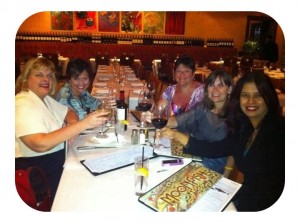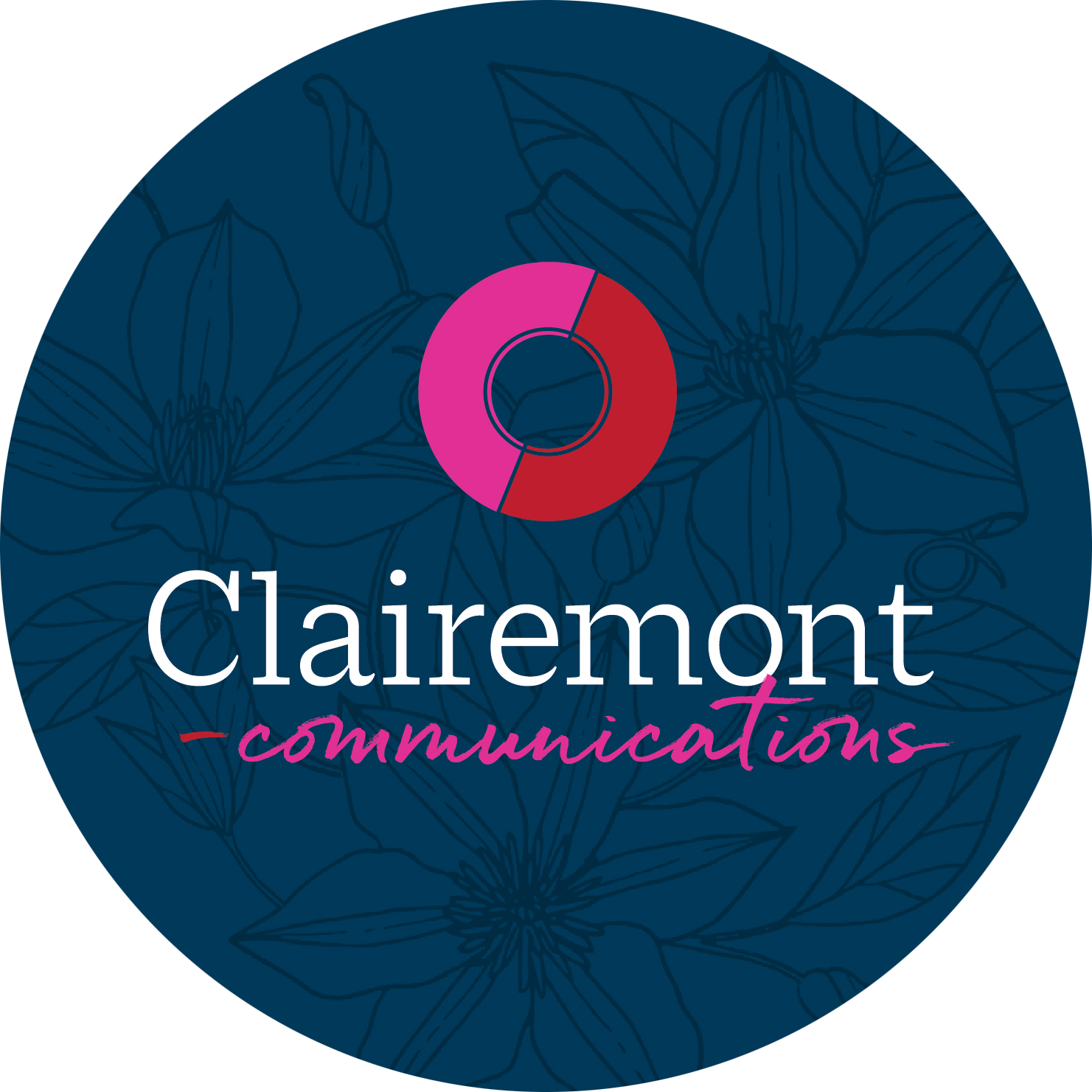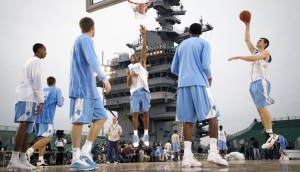
Last month while I was attending PRSA’s International Conference in Orlando, I had the pleasure of finally meeting Mary Deming Barber of The Barber Group who just might be one of the best networked professionals in the communications field. We got to talking about how students connect with professionals and use networking to help secure that first big break into PR.
Wait, I should correct myself. We really talked more about how students are NOT connecting and networking. With nearly 20 years of experience, I was honored to get to sit by Mary during lunch. Imagine my surprise when she told me that a friend’s daughter who aspires to enter the communications field ignored Mary’s email introductions to several other established, well-connected and willing-to-help professionals.
During the same trip, I got to have a little fun by celebrating Abbie Fink‘s birthday with her at Disney’s Hollywood Studios. Abbie is another networking queen, and she spied the group of students wearing PRSSA (Public Relations Student Society of America) t-shirts. Abbie exchanged hellos with a few of them, and honestly, I wanted in on the fun! As a former PRSSA member, I was excited to see them, so we attempted to start a dialogue with the larger group of about 10 or 12 students. They were friendly, but not a student out of the group seemed to have the thought that two potential employers were standing in front of them saying, “Hey, tell me about yourself!”
I remember when I was a college junior and attended the PRSSA International Conference, which is held at the same time as the PRSA International Conference, by design. Standing in the buffet line, I found myself in a conversation with a man who had a ribbon on his name badge that read College of Fellows. After asking what that meant, I also learned that he was attending an invite-only College of Fellows dinner that evening.
“Can I go?” I asked. “No. You have to be a Fellow or guest of a Fellow,” he replied. “Can I be your guest?” I asked. “No. I already have a guest,” he answered. “Can you get me a ticket?” I tried again. “Look kid, you can’t go to this event. Why would you even want to go?” he asked. “I thought you might be able to introduce me to some people who might want to hire me next year,” I said, naively confident. He told me I was “nicely assertive” and was chuckling and shaking his head as he walked away. Two years later, he gave me my first agency job.
Mary and I wondered…why do today’s students seem to be missing some networking know-how? Is it not being taught in school? By parents? Is it our responsibility? Like most PR professionals I know, I’m willing to share anything I can to help students and new grads! Let’s start with these three tips:
- If you (or your mom or dad) ask a busy professional like Mary to help you, keep up your end of the bargain. Mary took the time to write email introductions, connecting the student with other people in PR she respects. When the student never responded, she wasted Mary’s time and made Mary look bad for making the recommendation in the first place. Not to mention the fact that the student missed out on making some very influential people part of her life that could have had positive outcomes throughout her career. Learn to follow up now, or you won’t make it.
- Have a few conversation starters ready to go so that when you find yourself with a networking opportunity — whether it is at a business event or a theme park — you can make the connection. With social media, it should be easier now than ever to exchange contact information. Something that could have worked for the students at Disney — “So you are here for the conference, too? That’s great. Are you coming to any of the student events?” I think this would be a good one seeing as we were all communications people….”Hey, are you tweeting about your day here? What’s your Twitter handle so we can follow you?” It also never hurts to ask someone to say her name again if you didn’t get it the first time (most people don’t)… “What is your name again? Do you happen to have a card on you?” That works in any situation, and people are typically flattered that you are making an effort to remember their names and pay attention to who they are and where they work.
- One of my clients and an incredibly smart CMO, Teri Slavik-Tsuyuki, says that curiosity and critical thinking are two of the most important things she looks for when screening candidates. Don’t be afraid to ask questions. I didn’t know what College of Fellows was all about, but my curiosity about it was what led to the conversations that landed me my first agency job. Prior to my interview, I did as much research on the firm and its clients as I could, and when I arrived I was armed with lots of questions. I asked about how the agency did its work and why the teams had made certain client decisions.
Now it’s your turn. As PR practitioners, what other pieces of advice do you have for students? And students, we would like to hear from you, too! Take advantage of the comment thread as an opportunity to ask questions — we’re here to answer them!







